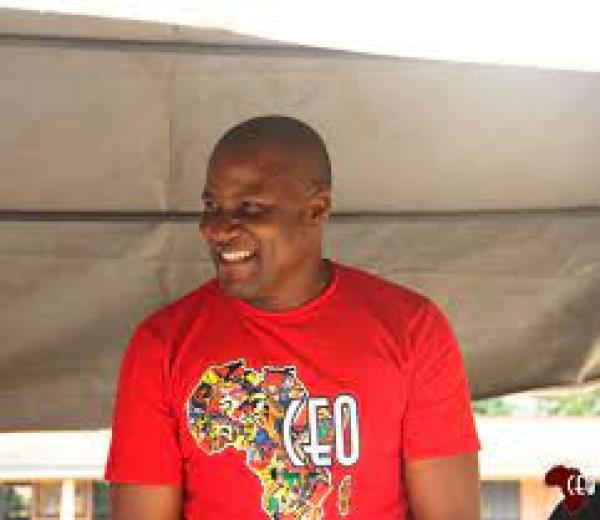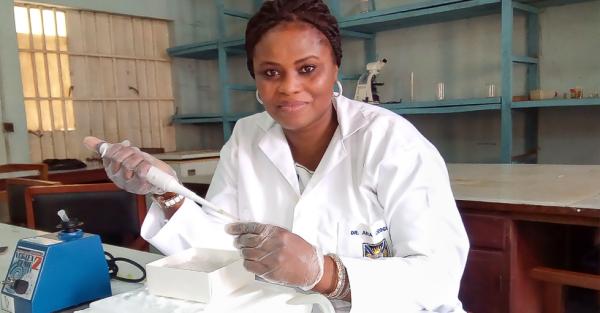Aina Adeogun, a Professor of Aquatic Toxicology, University of Ibadan has made a loud call on the urgent need to save humanity by reducing plastic waste pollution around us.
Prof Adeogun made the call during a sensitization workshop birthed by the Mclean Project Nigeria in collaboration with the University of Ibadan Research Management Office.
The workshop which was chaired by the Deputy Vice chancellor (Research, lnnovation and Strategic Partnerships) of the University of Ibadan, Prof. Oluyemisi Bamgbose, brought together stakeholders: the Academia, University community, societal groups, secondary school pupils, government and industry to discuss a topical issue of societal importance. She summarized the essence of the workshop - “Finding a Sustainable Single Plastic Item Use Pattern for Society and Industrial Sustainability. Experts in Water pollution, amendment and mitigation have cautioned that the extensive use of plastics, especially single used plastic items: Pure water nylons, plastic bottles, in our everyday lives and the improper disposal methods adopted in our society where plastics and nylons litter our water ways may result in increased incidents of Cancer, metabolic disorders like Diabetes and Reproductive problems in Humans." The deputy VC stated that the group of experts on Water pollution in the University of Ibadan in collaboration with the Norwegian University of Science and Technology, Trondheim, Norway, won a Tetfund national intervention research grant in 2019. She made known further that: "the workshop is a product of one of the nine research grants won by the University of Ibadan researchers for that year. The findings from the research led by Prof. Aina Adeogun (Principal Investigator), Department of Zoology on the dangers of plastic pollution on our drinking water and human health, provided important information on the contributing factors to the widespread plastic pollution in our environment and the sustainable approaches to reducing plastic pollution, using home-grown initiatives that are practical for a developing country like Nigeria. This is a pioneer research initiative.”
She stressed that it is instrumental and strategic that the research is carried out in the University of Ibadan, as “the first and best”. She strengthened her position by making allusion to the recently released 2023 Webometrics University ranking which placed UI 1st in Nigeria, 3rd in West Africa and 8th in Africa.
Prof. Bamgbose pointed out that the problems associated with plastic pollution are numerous and deadly, hence she urged participants at the workshop to consider practical lifestyle adjustments in the use of plastics by incorporating what she called the 3Rs – Reduce, Reuse and Recycle plastic products towards environmental and human protection. In closing, she implored Oyo State government as the pacesetter state in Nigeria to implement the recommendations from this research and set an example for other states in the country to follow; and students present at the workshop to form clubs in their schools that will help sensitize others about the menace.
The purpose of the workshop is to have researchers on the project, led by the PI, Prof. Adeogun showcase the findings of the research which is the first of its kind in West Africa. The main objective of the Research is to provide societal-based solutions through evidence-based research in addressing national and regional challenges in line with the UN SDGs for protection of Human and Aquatic lives. The project is one of the 9 projects approved by Tetfund in 2019. The Department of Zoology got the one for Innovative research.
In his speech, Mr Ademola Aderinto, the special adviser to Gov. Seyi Makinde on Environmental Matters, discussed the plan of the government to curb the menace. According to him, it doesn’t matter what developmental efforts are put in place by any government, without a healthy environment, it will go to waste. He expressed his enthusiasm towards being a part of the endeavour. He intimated the audience on the plan of the incumbent Oyo state administration to offer indigenes money for their plastic wastes. He gave an example of Madam Jokelinks (present at the event) who produces fabric, furniture and bags from plastic wastes. In his interview with the press, he talked about these wastes having “second lives” where they can be recycled and used differently. He hinted on the willingness of the government to support such useful research and implement recommendations.
On why the Principal Investigator choose her project on plastic pollution, Prof. Aina Adeogun said she was concerned about the habitual litter of plastics especially the pure water nylon which she researched to have effects on the aquatic lives. "I observed the fishes in our environment had severe endocrine disruption which we eventually traced to plastic related pollutants in our water bodies. This is simply to say that the greater percentage of plastics wastes on our streets end up in our lakes, streams, rivers because of floods that move them from land to water during the rainy season coupled with wind action; and subsequently constitute health hazards and threat to us and environment."
The research studied aquatic life in selected water bodies in South-west Nigeria, to see if these plastic wastes impacted them in any way. The areas studied were: Eleyele
Lake, Asejire lake, Lagos lagoon, Epe lagoon and Ologe lagoon. The study showed that these plastic wastes, get broken into small particles called Microplastics over time and are ingested by fishes that mistake them for food, and this causes harm to these aquatic lives. Over 60% of the fishes studied had deposits of Microplastics in them. This may have negative impacts on us, as we eat fish for food. Further on the study, the herbivorous species, Tilapia at Asejire had more microplastics in them than other fishes there. Also, in Eleyelelake, it was discovered that detritivores (those that feed on mud) had more microplastics than others in their gut. Sequel to these findings she stated the need for stakeholders such as “religious houses, the academia, parents, children, the market women, everybody” to join the fight against plastic pollution. She said medical experts have linked breast cancer to harmful chemicals from plastics as one of the major pollutants of the environment. These wastes are washed into water ways and finally end up in different lakes and rivers. She also recommended the need to put an end to the use of plastic bags for products bought in the market, supermarkets and substitute plastic shopping bags with cloth bags.She presented the need for people to learn ways of properly disposing plastic wastes in a way that they can be reused. She said: “In Norway for instance, people return plastic bottles to shops in exchange for money.”
This is in line with what Mr Ademola Aderinto said, which may well have been gleaned from the partnership of his office with the research team. She appreciated the attendance of students from UI International School and Abadina Grammar School, saying that their interest in the programme is of pressing importance as they are great influencers in their homes. She recognized that “some people pick plastics from the streets for money, which is good, but they may not be properly cleaned. So better ways of recycling such plastics are available and can be adopted and implemented by the government through further meetings such as the workshop.”
Speaking further about the contributions of certain stakeholders to the STOP PLASTIC POLLUTION campaign, Prof. Adeogun talked about the devotion of the MTN as a CSR (Corporate Social Responsibility) which led to the establishment of a plastic recycling plant at Aleshinloye in 2003, pointing out that her group is visibly collaborating with key stakeholders at Aleshinloye market area and the Oyo State government to see that the facility is restored to its former glory. She hinted on the importance of partnering with locals to ensure the success of the campaign. She recognized the presence of Alhaji Wasiu who owns a mini recycling plant in Aleshinloye and Mr Bamidele who is the manager of the erstwhile recycling plant. Alhaji Wasiu made some important suggestions in his speech delivered in the Yoruba language.
Prof. Adeogun in a bid to demonstrate the urgency for reduction of the menace urged participants to pick plastic wastes off the ground and be disposed of properly, there at the venue. This she said is a demonstration to show the level of plastic wastes that can be found just around the venue of the event. This is to awaken the consciousness of participants to the degree of danger that we are faced with. Thereafter, participants carried out an innovative highlight of the workshop tagged "Plastic Walk" where they picked up plastic items and sorted them out for 30 minutes to gain first hand experience on the enormity of plastic wastes in our environment. Groups expressed surprise at the tons of plastic items collected within the short timeframe and these items were sent to recyclers to generate new products.
The technical session was presented by Prof. Augustine Arukwe, who travelled all the way from Norway for the programme. While lamenting the habit of littering the environment with plastic materials, he defined microplastics as “plastic particles or their polymers that are smaller than 5mm in size at each dimension”. He said the wastes which participants picked in and around the Zoology lecture theatre are macroplastics and so do not fall into the category mentioned in the definition. Microplastics are associated with hazards in biofilms attached to them. He said we are used to plastic because of its flexibility, but we lack understanding of the health implication which is made possible by harmful chemicals known as plasticizers. Prof. Arukwe added that it has not been shown yet that these chemicals can pass through blood barriers into the circulatory system, but that these chemicals leach into our systems and can cause serious health problems. Scientific evidence has shown that a lot of micro pathogens associated with microplastics enter into drinking water and poses significant health risks to humans and animals. He established that plastics are used in everything and we use them every day, example, the packaging of food, clothing and the packaging of industrial materials. Prof. Augustine Arukwe further posited that we cannot completely do away with plastics but we can contain plastic pollution. He revealed that the aim is to find means of reducing it by at least 10% in each person.
Prof. Augustine Arukwe mentioned the danger of a harmful chemical called PFAs (Perfluorinated alkanes) which is used to produce nonstick cooking utensils. Some of our home-use items that do not soak water and are not flammable and are highly coated with PFAs; this includes our mobile phones, otherwise your cell phones could go up in flames when plugged in to charge. It is the duty of the society to manage this menace. He said the onus is on us especially on teens and young adults that participate in this campaign, because they will be around for long. In summary, he stated that there must be a political will to regulate new plastic additives and also regulate the use of plastics in the food processing industry, which he said will go a long way in containing the ravaging menace of plastic pollution.
Remarking on the workshop, the Dean, Faculty of Science, Prof. Bakare stated that waste disposal has continued to cause serious challenge which has led to several governmental programmes aimed at environmental sanitation, uncontrolled urbanization and rapid industrialization, which he said are responsible for the high waste generation in the country. "With about 2.2 million tonnes of plastic waste annually, Nigeria ranks 9th globally. 88% of plastic waste generated in Nigeria is not recycled. Again, over 60 million plastic sachet water bags are used and disposed of daily in Nigeria. Plastic bags and bottles are disposed indiscriminately. Plastic waste when burnt releases harmful toxins which negatively impact the quality of air that we breathe; it also seeps into the soil affecting the quality of drinking water. The International Union of Conservation of Nature has noted that plastic wastes that find their way into the Oceans, pose a threat to marine biodiversity by way of toxic contaminants of invasive marine species. WHO has linked dioxin for example, to cancer, damage to the immune system, hormonal imbalance and reproductive health." Prof. Bakare decried.
Also in the workshop for the event is Prof. Oyeronke Odunola, Dean, Faculty of Basic Medical Science, University of Ibadan, who expressed her joy for the well researched work that would contribute immensely to knowledge. She reiterated that the project is needed at this point in time to help inform about the imminent danger of plastics that conspicuously litter our street. "Plastics have chemicals that are therefore dangerous to human and animal lives and of course, our environment. It is very important therefore to clean the environment to ensure the safety of human and animal lives, she stated .
Prof. Adesola Hassan, Head of Zoology Department in her speech, paid attention to study areas that have crucial stakes towards the success of the implementation of the research findings. She mentioned areas such as Molecular Biology, microbiology and fisheries, ecology and environmental biology, genetics, animal physiology and entomology as key stakeholders. The
Director, Research Management Office, Prof. Jegede spoke briefly about the policy implication of the findings that it is not for the benefit of academia alone. He opines that the research has created a doorway for further researches.
The private sector stakeholders, such as the Mrs Ajoke, mentioned earlier who produces items from plastic wastes and Alhaji Wasiu who has a mini recycling plant, discussed the importance of their contribution to the campaign – STOP PLASTIC POLLUTION.
The workshop also played host to representatives of the Nigerian Institute of Oceanography and Marine research and the Department for pollution monitoring and quality control, Oyo state ministry of environment and Natural resources and NESREA.
The workshop drew to a close and participants moved to their different syndicate groups. The grouping of participants was for the continuance of the conversation around the findings of the research and the call to action for the government and other stakeholders. These discussion groups were coordinated by co-researchers on the project.
In attendance at the workshop were other members of the research team: Drs Richard Ibor, Azubuike Chukwuka, Adeola Oni and Femi Oluwale, other key stakeholders from academia, industry secondary schools and private sector: The Dean, Faculty of Science, UI, Prof. Bakare, Prof. Adesola Hassan (Head, Department of Zoology, UI), Mr.Ademola Aderinto (Special Adviser to the Governor of Oyo State on Environmental Matters), Prof. Agbaje, former Deputy Vice chancellor, Mr.Bamidele, (Head MTN CSR Center for recycling of waste and organic fertilizer at Aleshinloye), Alhaji Wasiu (Owner of a mini plastic recycling plant), the Aare of Aleshinloye market, among others.






















